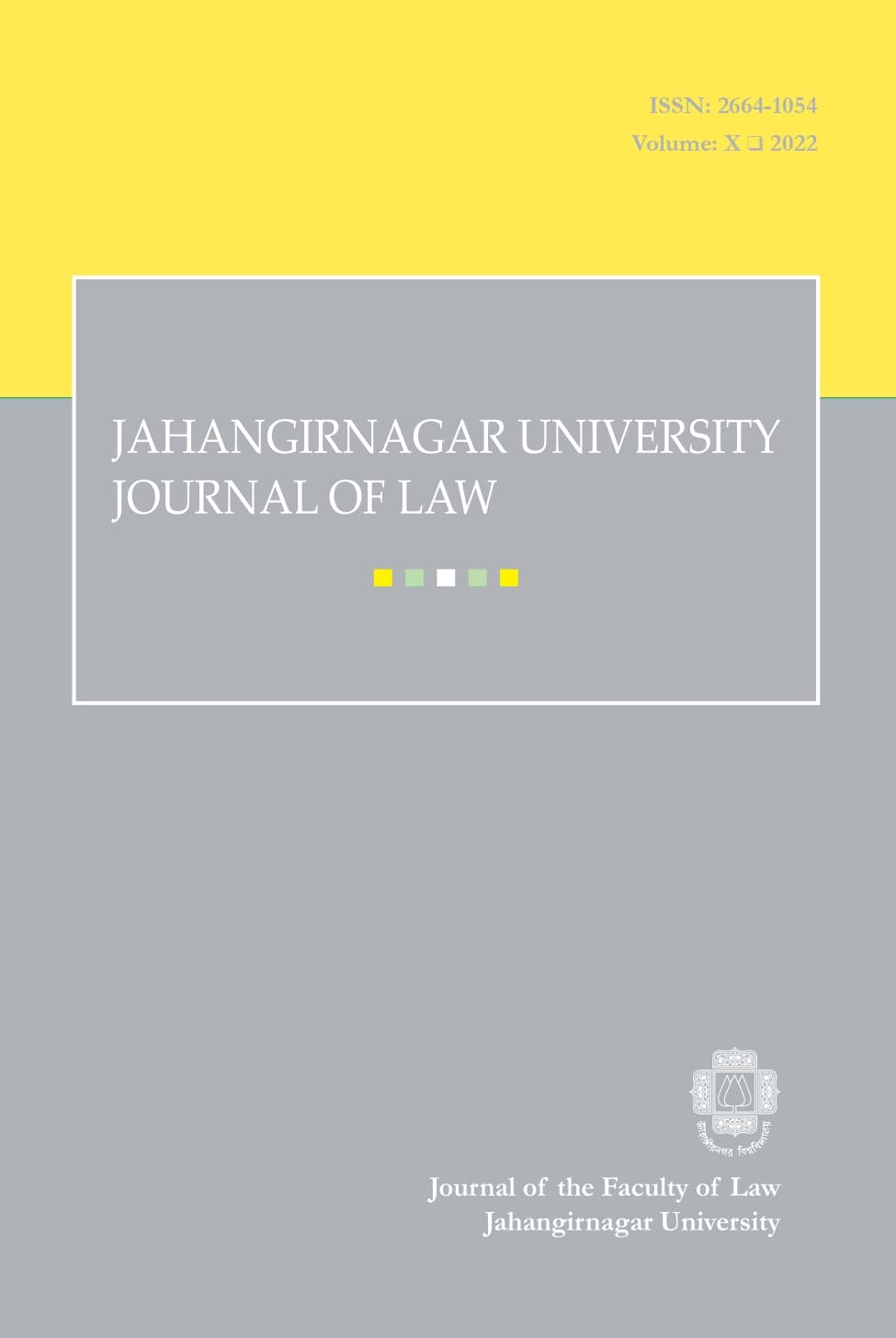The Post-2020 Global Biodiversity Framework: Recognizing and Integrating Indigenous Knowledge and Practices into Bangladesh’s Biodiversity Laws and Policies
Main Article Content
Abstract
The first draft of the Post-2020 Global Biodiversity Framework (GBF) calls on governments and all sectors of society as a whole, especially indigenous people, to take immediate and transformational action to halt biodiversity loss by 2030. This paper contends that increased recognition, integration of the indigenous community at the national policy level, and equitable distribution of profits deriving from their traditional knowledge would ameliorate the post-2020 national biodiversity conservation goals of Bangladesh. We examined how far the provisions of Bangladesh's key biodiversity conservation legislations are supportive of recognizing and integrating indigenous knowledge and practices (IKPs) at the policy level to realize the post-2020 global framework goal. The paper presents a desktop assessment of current legal frameworks on biodiversity conservation in order to highlight legal strengths that previously supported and promoted IKPs in biodiversity conservation. Furthermore, it attempted to identify legal gaps that require additional legislative actions to meet the commitments under post-2020 GBF. In light of the Post-2020 GBF, the study finds that Bangladesh's strategic approach to biodiversity could benefit from the synergy between government initiatives as well as the full and effective engagement of indigenous people. This article argues that constitutional amendments are required to embrace an inclusive approach to IKPs in Bangladesh's biodiversity conservation legislations and policies, which could explicitly encourage that synergy.

